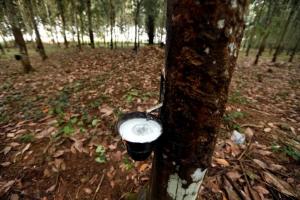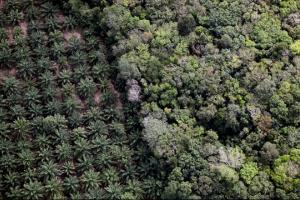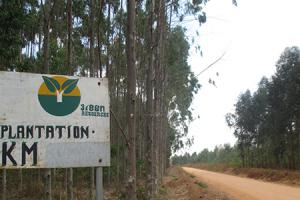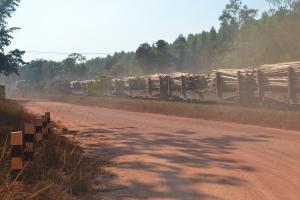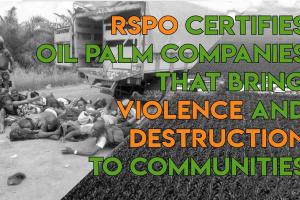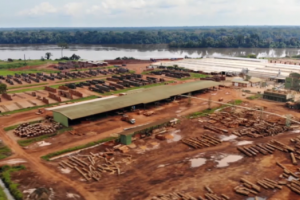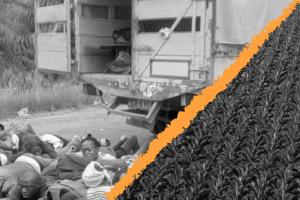Certification Schemes
'Keep buying!' This is the message that certification schemes promote. Whenever an industrial or agricultural commodity falls into disrepute, a voluntary certification initiative will soon emerge. Certification schemes allow for the expansion of corporate control over community lands. They also have all failed to resolve conflicts between communities and the corporations that have taken over their territories. Their contribution to reducing ecological harm also remains elusive, especially where industrial monoculture plantations are given a “green” label.
The industrial production of natural rubber has always been synonymous with destruction and exploitation. About 70% is used to manufacture tires. As the use of cars, trucks and airplanes increases, the use of rubber will also increase. And this does not come without controversy.
At first glance, the Nzivi village is a village as many others in the area. But a big difference is that it does not allow investors for large-scale activities, such as monoculture tree plantations. Green Resources is the main private plantation company active in Tanzania. (Available in Swahili).
Certification schemes for tree plantations initially generated many expectations, promising a true transformation. Yet after all these years, we can definitely conclude that what the RSPO and FSC also have in common is that they will not meet those expectations.
For years, WRM has been warning many certified monoculture plantations in Brazil have been established on land for which titles were obtained fraudulently. This article discusses the case of two companies that operate in the Brazilian Amazon: Agropalma and Jari Florestal.
Friends of the Earth International and the World Rainforest Movement have launched an international sign-on statement denouncing the Roundtable on Sustainable Palm Oil (RSPO).
A new documentary shows how the FSC certification of forests and industrial tree plantations looks like on the ground and whether it protects the forests and the rights of indigenous peoples and local communities.
On November 12, with the endorsement of organizations from five continents, Friends of the Earth International and World Rainforest Movement publish an open statement denouncing the failure of the RSPO to eliminate the violence and destruction that oil palm plantations.
We invite organizations to sign on and support the statement, which denounces that the RSPO, since it was created 14 years ago, has been a tool that served the corporate interests of the oil palm sector
We invite organizations to sign on and support the statement, which denounces that the RSPO, since it was created 14 years ago, has been a tool that served the corporate interests of the oil palm sector
The oil palm company Socapalm in Cameroon plans to renew its ISO 14001 certification, which expired in 2017. We expose the company's attempts to cover up the destruction caused to the communities and the environment
